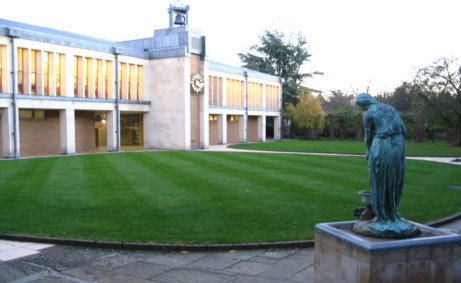
Language society gives first UK classes in spoken Sanskrit.
A Gates scholar has set up a language service which offers the first classes in the UK in spoken Sanskrit.
Gitte Marianne Hansen, who is doing a PhD in Asian and Middle Eastern Studies, set up the Wolfson Language & Culture Society with three friends at the end of last year. She got the idea for it after her husband and a friend said they wanted to learn Japanese. Gitte’s research focuses on women in Japan.
After setting up the society with three other students, it has grown quickly and now offers classes in beginner and intermediate Chinese, beginner Japanese, beginner Pali [an ancient Indian language], beginner German, beginner Italian, beginner Arabic and beginner and intermediate Sanskrit.
Although spoken Sanskrit has been taught at occasional short workshops in the UK, this is the first running course on the subject.
Sanskrit is one of the world’s oldest languages still in existence and is grouped in with Indo-European languages, including English, with which it may share a common ancestor language. It is thought to have originated in the Indus Valley and has been used primarily by people of the upper classes, including religious scholars. It is still a language of higher education, but is not commonly spoken, much like classical Latin and Greek. Less than 50,000 people are thought to speak it in India, although it is still an official language.
The classes are free for Wolfson members, but are also open to the wider community, including people outside the University.
Demand for the classes has grown and the student teachers have to balance their teaching with their research. They receive a small amount of funding from the Wolfson College Students Union.
Students joining the classes do so for a range of different reasons. Those taking Japanese range from a PhD science student who wants to do a post doc in Japan and someone who lived in Japan as a child to people who have never learned a foreign language before. In the Pali class, there are students who are very interested in yoga as well as people who know other ancient Indian languages and some who are interested in ancient Buddhist texts. Some are from outside the university.
Pali is a Middle Indo-Aryan language and is best known as the language of many of the earliest Buddhist scriptures. Today it is studied mainly to gain access to Buddhist scriptures and is frequently chanted in a ritual context.
“It is great to start something like this and to feel we are doing something people around us support and think is a good idea and it also gives us teaching experience,” says Gitte.
The Society is also interested in capitalising on the international nature of Cambridge and wants to hear from anyone who wants to share their travel experiences or talk about growing up in a different culture.












